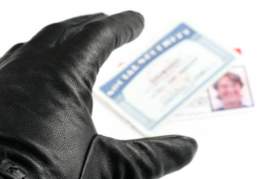
Tennessee Expungement Laws

Tennessee expungements are characterized by the removal of a record pertaining to an arrest or conviction relating to a crime. According to Tennessee expungement law, an expunged record does not exist as far as the general public is concerned. The person receiving an expungement has the legal right to deny the existence or their participation in any crime relating to the expunged record.
However, Tennessee expungement law allows for the expunged records to be used in court proceedings involving impeachment or when judging the character of the person when serving as a witness in court.
The expunged records are not completely obliterated. They are available to an attorney upon request for criminal court cases. These non-public records can also be used to determine sentencing in future criminal cases. Tennessee expungement law does not literally erase the criminal history of a person. It just gives them the right to keep their history out of public record and gives them the right to deny anything involving the case on record.
If the person whose record was expunged acts as a plaintiff in a civil case involving actions that took place in the expunged record, the expunged record may be brought up in the civil trial. Guilty pleas and guilty verdicts are also permissible in civil trials despite the record being subject to Tennessee expungement and removed from public record.
Tennessee Expungement Eligibility
There are certain circumstances that play a role in whether or not a person may have their record expunged. An expungement may be granted if:
The person in question has been exonerated by the governor of Tennessee. People who receive executive pardons are not eligible for a Tennessee expungement. A person whose charges were dismissed or dropped may receive an expungement. Tennessee expungement law will not grant an expungement to anyone charged with a sex crime even if it is dismissed.
Expungement will also be granted if the charge was dismissed, a no true bill was entered by a jury, a not guilty verdict was reached by either a judge or jury, the person was arrested and released without any charges placed against them, the person successfully completed a pretrial diversion program, sentences have been completed or bond requirements have expired, the person submitted an expungement petition after a nolle prosequi was entered by the court, or the person only has one charge that took place before age 21. However, the crime cannot be a sex crime.
Access to Expunged Records
Expunged records not pertaining to sex crimes or crimes child services must be notified about will be removed from public access. Intelligence agencies, the court system, district attorneys, and investigators will still have access to all parts of the expunged files. Tennessee expungement law does not call for court decisions and opinions to be removed from public access.
How to get an Expungement
Those who have been pardoned do not need to file a petition under Tennessee expungement law. All others will be required to petition the court that handles expungements. The court may consult with the Tennessee Bureau of Investigation to send the expungement request to the expunged criminal offender and pretrial diversion database.
The petition must contain all personal information such as date of birth, address and social security number. All information regarding the arrest, offense and court case must be included. If the person was acquitted or no charges were filed, there is no fee for the petition. Those who were required to complete the pretrial diversion program must pay a $50 fee.



















